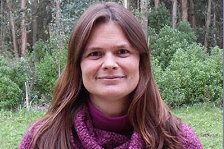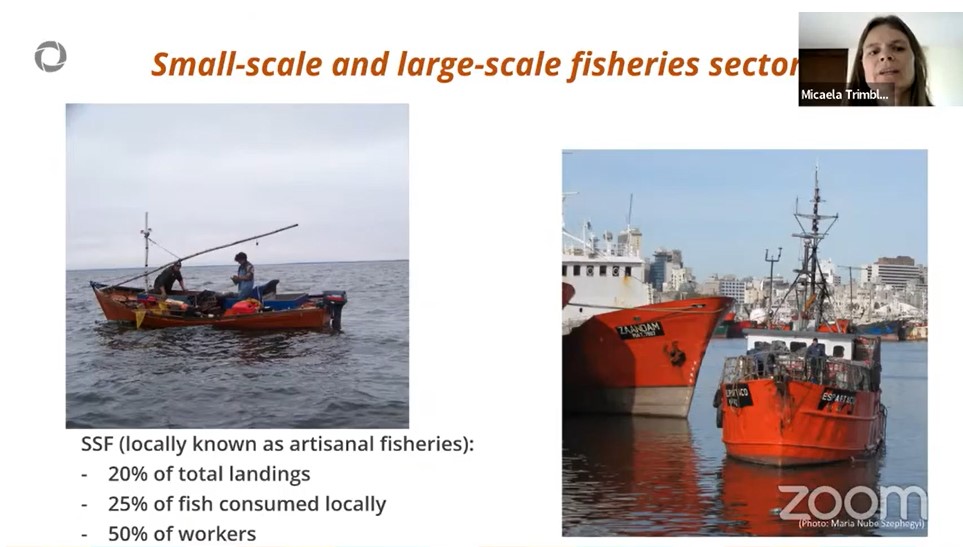 Over the past decade, small-scale fisheries in Uruguay have been undergoing a governance transition from top-down management towards co-management, involving the creation of consultative councils composed of fishers and government actors. In this talk delivered in the monthly webinar series of the V2V research platform, 28 October 2022, Micaela Trimble explores the challenges of this bumpy process as well as some multistakeholder participatory processes with transformative potential for the viability of the sector.
Over the past decade, small-scale fisheries in Uruguay have been undergoing a governance transition from top-down management towards co-management, involving the creation of consultative councils composed of fishers and government actors. In this talk delivered in the monthly webinar series of the V2V research platform, 28 October 2022, Micaela Trimble explores the challenges of this bumpy process as well as some multistakeholder participatory processes with transformative potential for the viability of the sector.
For last more than 10 years, she and later her students and colleagues have been studying and accompanying these transformation processes in Uruguay, a country where small-scale fishers contribute about 20% of the fish catches, including from inland waters, but where most of the production is exported while domestic consumption is below the global average at only around 8-9 kg/person and year. Traditionally management was highly centralised and top down, similar to many other countries. As a result fishers and managers barely saw eye to eye.
Yet, shrinking catches and profitability in combination with other social and environmental crises exercised pressure disrupting the status quo. Influenced additionally by trends encouraged by FAO, international debates and the adoption of the Code of Responsible Fisheries in 1995 the government updated previous outmoded legislation for consultative processes with fishers and other stakeholders in 2013. Final decision making remained, however, the prerogative of the fisheries department (DINARA).

An important starting point for change was the creation of local and regional councils as well a national level council for deliberations. Fishers did not trust the government, but were not well organised to voice their grievances in a structured manner. The start of dialogues facilitated by a GEF project involved artisanal fishers, DINARA, municipal officials, coast guard and representatives of the environment ministry when protected areas were also of concern at local level. It was found important to focus early-on on a joint evaluation of the councils, their purpose, their mode of operation and effectiveness. In the process, some lacunae were identified, e.g. lack of clear operational rules. In one of the reported cases fishers became particularly frustrated with the lack of speed and results and withdrew from the council. Nevertheless, throughout the multi-stakeholder meetings, some trust was developed, but only among those who actually participated actively. All groups learnt in the deliberations of the participatory evaluations (PE) and gained understanding of the positions and roles of other participants, fishers improved their self-confidence and level of organisation.
In several sites, the councils stopped working after a few years, but some continued working to this day and other initiatives were taken e.g. the creation of a festival of small-scale fisheries in Piriápolis in collaboration with restaurants, media and others.
Luckily many of these learning processes were accompanied by participatory action research, so that the experiences got published and can be more broadly shared to inspire other groups in the country and beyond. Micaela presented not only the general context but also at least key points of three interesting case studies. To follow the full lecture and Q&A session, click here. We highly recommend that.








